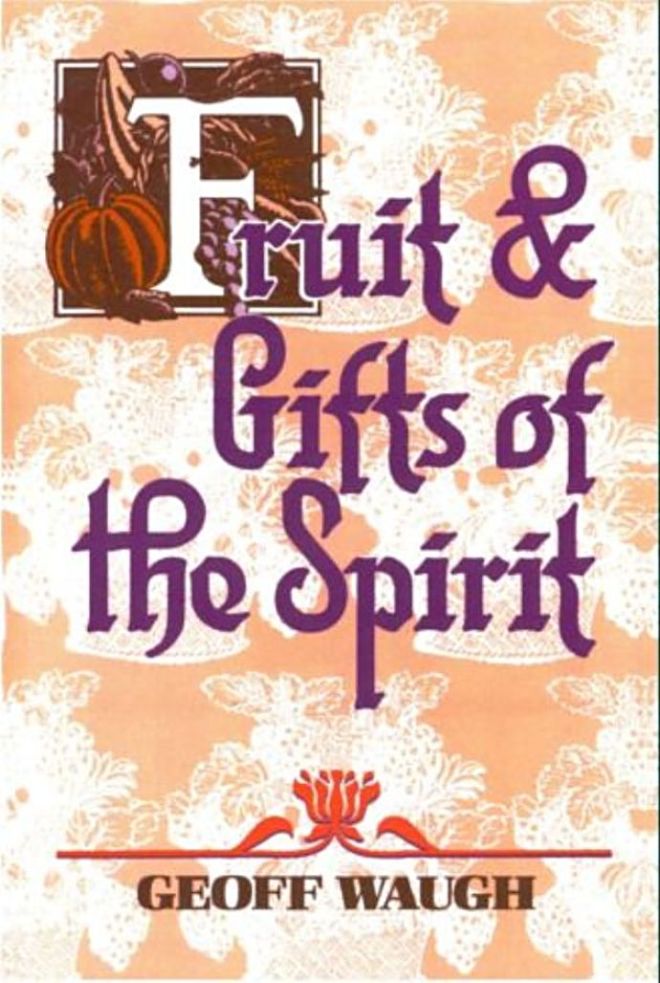 Living in the Spirit
Living in the Spirit
The Holy Spirit and the Christian Life
Share good news – Share this page freely
Copy and share this link on your media, eg Facebook, Instagram, Emails:
Voices from History:
https://renewaljournal.com/2015/06/13/living-in-the-spirit-appendix-1-voices-from-history/
Living in the Spirit: https://renewaljournal.com/2010/12/26/living-in-the-spirit/
Free eBooks on this page. Paperbacks in the Renewal Journal Store
APPENDIX 1: Voices from history
Reproduced from Living in the Spirit
Detailed Contents with Photos from this book
 Tertullian (160‑220) lived during severe persecution of Christians, noting that the blood of the martyrs is the seed of the church. He was a brilliant Christian scholar and lawyer theologian from North Africa. In commenting on baptism and the Spirit, he says:
Tertullian (160‑220) lived during severe persecution of Christians, noting that the blood of the martyrs is the seed of the church. He was a brilliant Christian scholar and lawyer theologian from North Africa. In commenting on baptism and the Spirit, he says:
“Not that in the waters [of baptism] we receive the Holy Spirit, but cleansed in water, and under the angel we are prepared for the Holy Spirit.”
Tertullian joined the Montanist movement early in the third century and challenged the worldliness of the church of his day. The Montanists flourished in Asia Minor from the second century into the fifth century. Montanus spoke in tongues at his baptism and began prophesying. His movement called people to holy living and they expected the Lord to return soon. They valued the gifts of the Spirit, especially prophecy, although the movement became excessive and was rejected by the established church.
 Augustine of Hippo (354‑430) wrote:
Augustine of Hippo (354‑430) wrote:
“When you were exorcised [that is to have evil cast out] you were so to speak, ground. When you were baptised you were, so to speak, watered. When you received the fire of the Holy Spirit you were, so to speak, baked.”
Augustine refers to making bread and uses this to describe the work of God in our lives:
ground ‑‑ to grind the wheat; watered ‑‑ to mix the dough; baked ‑‑ to bake the bread in an oven.
Augustine of Hippo was a great thinker, leader, and writer in the early church who embraced the Christian faith after a varied career through the first half of his life.
He witnessed, was often instrumental in, and recorded many miracles. He said, “For when I saw in our own time frequent signs of old, I desired that narratives might be written, judging that the people should not be ignorant of such things.”
Often healing miracles accompanied the celebration of the sacraments and were supported by a dedicated life of prayer within the Christian community. He wrote, “Today miracles still go on happening in our Lord’s name, through the sacraments he instituted and through the prayers and memorials of his saints.”
Augustine believed that miracles build up faith: “The world believes, not because it is convinced by human argument, but because it has been faced with the power of divine signs.”
The Spirit’s gifts and power given to the apostles were part of the experience of the church in Augustine’s day.
 Cyril of Jerusalem lived about 315‑386. He was Bishop of Jerusalem from about 349.
Cyril of Jerusalem lived about 315‑386. He was Bishop of Jerusalem from about 349.
He likened Christian initiation [baptism in water] to the experience of Christ in the river Jordan. “As the Holy Spirit in substance lighted on him, like resting upon like, so after you had come up from the pool of sacred waters, there was given to you an unction [anointing], the antitype [a pattern of the way things happen in the future] of that wherewith he was anointed and this is the Holy Spirit.”
In other words, Cyril of Jerusalem held that Jesus’ experience of water baptism followed by anointing by the Spirit was a Pattern that Christians were meant to follow. That is to say, people would become Christians, enter the water of baptism and then receive empowerment for service by the filling of the Holy Spirit.
 Gregory the Great (540‑604) became Pope in 590. The times were wracked by war, famine and devastation. Nevertheless, it was a time of intense missionary activity accompanied by the overt manifestations of the gifts of the Spirit. Gregory was a prolific writer, and in his Dialogues and sermons we read of many accounts of prophecies, healings, and visions that people were currently experiencing.
Gregory the Great (540‑604) became Pope in 590. The times were wracked by war, famine and devastation. Nevertheless, it was a time of intense missionary activity accompanied by the overt manifestations of the gifts of the Spirit. Gregory was a prolific writer, and in his Dialogues and sermons we read of many accounts of prophecies, healings, and visions that people were currently experiencing.
In commenting on Augustine the missionary to Britain (died 604), he said, “By the shining miracles of his preachers, God has brought faith even to the extremities of the earth… The tongue of Britain, which before could only utter barbarous sounds, has lately learned to make the alleluia resound in praise of God”, and Augustine and his fellow missionaries “seemed to be imitating the powers of the apostles in the signs which they displayed.”
He believed that such phenomena should be integrated into the life of the church, and in the Dialogues he says, “Every act of our Redeemer, performed through his human nature, was meant to be a pattern for our actions.” After describing a healing, he said, “If anyone would ask you how this happened, tell him simply that the Lord Jesus Christ was here doing his work.”
 Francis of Assisi (1182-1226) was born in that typical Italian town of the thirteenth century. It had a hierarchy, at the bottom of which were peasants, believing in the power of miracles, relics and pilgrimages, but knowing little of the power of Christ in their lives, or even of the facts of the gospel story. Then came prosperous citizens, the higher clergy and the land‑owning gentry. Assisi had its wars, such as that which made such a deep impression on Francis, the war with the neighbouring city of Perugia .
Francis of Assisi (1182-1226) was born in that typical Italian town of the thirteenth century. It had a hierarchy, at the bottom of which were peasants, believing in the power of miracles, relics and pilgrimages, but knowing little of the power of Christ in their lives, or even of the facts of the gospel story. Then came prosperous citizens, the higher clergy and the land‑owning gentry. Assisi had its wars, such as that which made such a deep impression on Francis, the war with the neighbouring city of Perugia .
Into this world came Francis, renouncing his family’s prosperity and proclaiming the excellence of a life of poverty, peace, love, and labour. He has been called the Mirror of Christ, God’s Jester, and the Little Poor Man of Assisi. He took Christ seriously, reminding his world that love is more than an abstract virtue about which to preach sermons and write poems; it is something that has to be hammered out in the painful realities of daily living.
He told how the power of Jesus’ Spirit changed him: “I remember the first victory of my new heart. All my life I’d panicked when I met lepers. Then one day on the road below Assisi, I did one of those surprising things that only the power of Jesus’ Spirit could explain. I reached out and touched a leper, a man the very sight of whom nauseated me. I felt my knees playing tricks on me, and I was afraid I would not make it to the leper. The smell of rotting flesh attacked all my senses – as if I were smelling with eyes and ears as well. Tears began to slide down my cheeks because I thought I wouldn’t be able to do it. Then, as I began to lose my composure, I grabbed the man’s hand and kissed it. In doing so, I received more than I gave. In finding that leper, I found Christ.”
 Walter Hilton (1340-1396) was an English mystic whose spiritual writings were widely read in the fifteenth century in England. The most famous of them The Scale of Perfection describes the spiritual journey of the soul. The section on prayer advises the reader to be detached from all earthly things and use every effort to withdraw one’s mind from them so that the mind may be stripped free of them and rise continually to Jesus Christ. While Christ will remain a mystery in his divinity, his humility and humanity are ways of experiencing his goodness.
Walter Hilton (1340-1396) was an English mystic whose spiritual writings were widely read in the fifteenth century in England. The most famous of them The Scale of Perfection describes the spiritual journey of the soul. The section on prayer advises the reader to be detached from all earthly things and use every effort to withdraw one’s mind from them so that the mind may be stripped free of them and rise continually to Jesus Christ. While Christ will remain a mystery in his divinity, his humility and humanity are ways of experiencing his goodness.
To pray well is to allow one’s heart to be freed from the burden of all worldly thoughts and, by the power of the Spirit, rise to a spiritual delight in the presence of Christ. “For prayer is nothing other than the ascent of the heart to God.”
In the section on loving others but hating their sin, he quotes Paul from Romans 5:5, “The love of God is shed abroad in our hearts by the Holy Spirit which is given us.” It is only by this givenness, this grace, that we can love others and hate sin, and without this “… all other actions do not make a man good or worthy of heaven.”
All Hilton’s writing depends on the basic thesis of the initiative for salvation and spiritual growth lying with God.
 Thomas á Kempis (1381‑1471) lived and wrote against a background of education and experience in the schools of the Brethren of the Common Life, an association founded in the Netherlands in the fourteenth century to foster a higher level of Christian life and devotion. Thomas á Kempis, while widely sought after as a spiritual adviser, is probably best known for a book which tradition strongly suggests he wrote The Imitation of Christ. It is a series of meditations and prayers designed to draw the individual Christian into a deep love for Christ.
Thomas á Kempis (1381‑1471) lived and wrote against a background of education and experience in the schools of the Brethren of the Common Life, an association founded in the Netherlands in the fourteenth century to foster a higher level of Christian life and devotion. Thomas á Kempis, while widely sought after as a spiritual adviser, is probably best known for a book which tradition strongly suggests he wrote The Imitation of Christ. It is a series of meditations and prayers designed to draw the individual Christian into a deep love for Christ.
In one meditation, he exhorts the reader to give up or forsake oneself in order to find God. “Stand without choice, without following your own will, and without all possessions, and you will advance much in grace.” If you resign yourself wholly into God’s hands, and take nothing for yourself, you will gain great inward peace.
That is something which should happen all the time, every hour, in great things and in small. God urges: “In all things I would find you naked and poor, and bereft of your own will. … Stand purely and firmly in me, and you will be so pure in heart and in soul that darkness of conscience or slavery to sin will never have power over you.”
 St Teresa of Avila (1515‑1582), The Spanish Carmelite nun and mystic, is remembered by the church for two major reasons. She was a reformer of the Carmelite Order and thus a woman of strong character, shrewdness and practical ability. She was also an influential writer on prayer and the first to point out the existence of states of prayer between meditation and ecstasy; she gave a description of the entire life of prayer.
St Teresa of Avila (1515‑1582), The Spanish Carmelite nun and mystic, is remembered by the church for two major reasons. She was a reformer of the Carmelite Order and thus a woman of strong character, shrewdness and practical ability. She was also an influential writer on prayer and the first to point out the existence of states of prayer between meditation and ecstasy; she gave a description of the entire life of prayer.
Her combination of mystic experience with ceaseless activity as a reformer and organiser make her life the classical instance for those who contend that the highest contemplation is not incompatible with great practical achievements.
In her book of prayer Interior Castle, she describes a kind of prayer which she desires for all Christians, but which the Lord gives: a strange kind of prayer, the nature of which one cannot ascertain. What happens, she says, is that one’s faculties are in close union with God, but our Lord leaves both faculties and sense free to enjoy the happiness, without understanding what it is that they are enjoying and how they are enjoying it.
St Teresa describes the joy of the soul being so great that instead of rejoicing in God alone she would rather share that joy so that others may rejoice in praising God “to which end it directs its whole activity.”
“How can your tongues be better employed, when you are together, than in the praises of God, which we have so many reasons for rendering him?”
 Martin Luther (1483‑1546), a Reformation pioneer, distinguished between the Spirit and the letter in Scripture, “for nobody understands these precepts unless it is given to him from above. … Therefore, they most sadly err who presume to interpret the Holy Scriptures and the law of God by taking hold of them by their own understanding and study.”
Martin Luther (1483‑1546), a Reformation pioneer, distinguished between the Spirit and the letter in Scripture, “for nobody understands these precepts unless it is given to him from above. … Therefore, they most sadly err who presume to interpret the Holy Scriptures and the law of God by taking hold of them by their own understanding and study.”
Luther argued that the Holy Spirit is hidden in the letter of Scripture, since the letter itself may proclaim only the Law, or the wrath of God. The Holy Spirit conveys the word of grace, the gospel. So the true reading of Scripture involves a continual process of bringing faith to birth, or constant renewal and re‑creation of spiritual awareness.
 John Calvin (1509-1564) of Geneva was a prolific writer. Among his writings we find commentaries on most of the Bible. In commenting on Ephesians 3:14ff., he disagrees with those “who argue, that, if the grace of the Holy Spirit alone enlightens our minds, and forms our hearts of obedience, all teaching will be superfluous.”
John Calvin (1509-1564) of Geneva was a prolific writer. Among his writings we find commentaries on most of the Bible. In commenting on Ephesians 3:14ff., he disagrees with those “who argue, that, if the grace of the Holy Spirit alone enlightens our minds, and forms our hearts of obedience, all teaching will be superfluous.”
“For we are enlightened and renewed by the Holy Spirit so that the teaching may be strong and effective, so that light may not be set before the blind, nor the truth sung to the deaf. Therefore the Lord alone acts upon us in such a way that he acts by his own instruments. It is therefore the duty of pastors diligently to teach, of the people earnestly to attend to teaching, and of both to flee to the Lord lest they weary themselves in unprofitable exertions.”
 Thomas Goodwin (1600-1680), the seventeenth century Puritan leader, in a lecture on the letter to the Ephesians, explains how the Holy Spirit works in the lives of all men and women. He explains that the Holy Spirit works in three ways:
Thomas Goodwin (1600-1680), the seventeenth century Puritan leader, in a lecture on the letter to the Ephesians, explains how the Holy Spirit works in the lives of all men and women. He explains that the Holy Spirit works in three ways:
First of all, the Holy Spirit makes it possible for a person to turn to God. The Holy Spirit touches a person’s mind so that he or she is able to believe. This is called regeneration.
The second thing the Holy Spirit does is in water baptism when we are cleansed from our sin.
The third thing the Holy Spirit does is to fill us so that we are able to carry out the task of evangelism. This he calls being sealed in the Spirit.
 Richard Baxter (1615‑1691) was an English clergyman of Reformed persuasion who made a deep impression on English Christendom. He left nearly two hundred writings, breathing a spirit of unaffected piety and love of moderation. Near the end of his life, writing his autobiography, he says:
Richard Baxter (1615‑1691) was an English clergyman of Reformed persuasion who made a deep impression on English Christendom. He left nearly two hundred writings, breathing a spirit of unaffected piety and love of moderation. Near the end of his life, writing his autobiography, he says:
“I am now, therefore, much more apprehensive [have more perception] than heretofore of the necessity of well grounding men in their religion, and especially of the witness of the indwelling Spirit; for I more sensibly perceive that the Spirit is the great witness of Christ and Christianity to the world. And though the folly of fanatics tempted me long to overlook the strength of this testimony of the Spirit, while they placed in it a certain internal assertion or enthusiastic inspiration, yet now I see that the Holy Ghost in another manner is the witness of Christ and his agent in the world. The Spirit in the prophets was his first witness; the Spirit by miracles was the second; and the Spirit by renovation, sanctification, illumination, and consolation, assimilating the soul of Christ and heaven is the continued witness to all true believers. And if any man has not the Spirit of Christ, the same is none of his (Romans 8:9).”
 John Wesley (1703‑1791) found strong motivation for evangelism at a conversion experience at the age of 35 while hearing Martin Luther’s Preface to the Epistle to the Romans read at a meeting in Aldersgate Street, London. “About a quarter before nine while he was describing the change which God works in the heart through faith in Christ, I felt my heart strangely warmed, I felt I did trust in Christ, Christ alone for salvation, and an assurance was given to me that he had taken away my sins, even mine, and saved me from the law of sin and death.” From then on he resolved “to Promote as far as I am able vital Practical religion and by the grace of God to beget, preserve, and increase the life of God in the souls of men.”
John Wesley (1703‑1791) found strong motivation for evangelism at a conversion experience at the age of 35 while hearing Martin Luther’s Preface to the Epistle to the Romans read at a meeting in Aldersgate Street, London. “About a quarter before nine while he was describing the change which God works in the heart through faith in Christ, I felt my heart strangely warmed, I felt I did trust in Christ, Christ alone for salvation, and an assurance was given to me that he had taken away my sins, even mine, and saved me from the law of sin and death.” From then on he resolved “to Promote as far as I am able vital Practical religion and by the grace of God to beget, preserve, and increase the life of God in the souls of men.”
He told how he and others including his brother Charles and George Whitefield with about 60 people were touched by God at a love feast in Fetter Lane, London: “About three in the morning, as we were continuing instant in prayer, the power of God came mightily upon us, insomuch that many cried out for exceeding joy, and many fell to the ground. As soon as we were recovered a little from that awe and amazement at the presence of his majesty, we broke out with one voice, ‘We praise Thee, O God, we acknowledge Thee to be the Lord’”
In a Letter to a Roman Catholic, he wrote (among other faith statements), “I believe the infinite and eternal Spirit of God, equal to the Father and the Son, to be not only perfectly holy in himself, but the immediate cause of all holiness in us: enlightening our understandings, rectifying our wills and affections, renewing our natures, uniting our persons to Christ, assuring us in our actions, purifying and sanctifying our souls and bodies to a full and eternal enjoyment of God.”
Wesley understood the value of small groups designed to promote Christian growth through prayer, Bible study, and the sharing of lives, and he established these groups all over Britain.
 David du Plessis (1905‑1987), acclaimed by Time magazine as one of the nine best known religious leaders in North America, was a humble man who dared to love others. A group of Catholic and Protestant editors included his name in a list of eleven religious giants who have challenged the assumptions and changed the thinking of the Christian community.
David du Plessis (1905‑1987), acclaimed by Time magazine as one of the nine best known religious leaders in North America, was a humble man who dared to love others. A group of Catholic and Protestant editors included his name in a list of eleven religious giants who have challenged the assumptions and changed the thinking of the Christian community.
This gracious Pentecostal pioneer lectured at Princeton, Yale, Union, and leading Catholic seminaries in America and Europe as well as at the Ecumenical Institute of the World Council of Churches. He was an official observer at the Vatican Council and involved in the Catholic Pentecostal dialogue in Rome where Pope Paul VI greeted him with, ‘So you are Mr Pentecost?’
He earned that nickname through his untiring efforts to bring the Pentecostal message to the whole church. Known as the boy preacher at fifteen where he was involved in the despised Pentecostal movement in South Africa, David du Plessis lived to see that movement grow over 100 million Pentecostal/Charismatic Christians worldwide by 1980, to over 400 million by 2000, and over 600 million by 2008.
The forthright English Pentecostal evangelist, Smith Wigglesworth, gave a remarkable and heretical (for a Pentecostal) prophecy to young David in 1936. The Lord would pour the Spirit upon the established church, he said, and the ensuing revival would eclipse anything the Pentecostals had experienced. David would be mightily used by God to bring acceptance of the Pentecostal message to the established churches. “This same blessing will become acceptable to the churches and they will go on with this message and this experience beyond what the Pentecostals have achieved. You will live to see this work grow to such dimensions that the Pentecostal movement itself will be a light thing in comparison with what God will do through the old churches. There will be tremendous gatherings of people, unlike anything we’ve seen, and great leaders will change their attitude and accept not only the message but also the blessing.”
David du Plessis declared, “God has no grandsons”, emphasising that all God’s children needed a personal spiritual birth for life in the Spirit. He stressed that Jesus is both the Lamb of God who takes away the sin of the world and the baptiser in the Holy Spirit (John 1:29‑34).
At an ecumenical leaders’ conference, he was asked, “What is the difference between you and us? We quote the same Scriptures you do, and yet when you say those words they sound so different. We say the same things that you do, but there seems to be a deeper implication in what you say.”
Referring to 2 Corinthians 3:5‑6 (the letter kills but the Spirit gives life), he replied: “Comparisons are odious, and I do not wish to injure anyone’s feelings or hurt your pride. But the truth as I see it is this: You have the truth on ice, and I have it on fire. … My friends, if you will take the great truths of the gospel out of your theological freezers and get them on the fire of the Holy Spirit, your churches will yet turn the world upside down.”
Reproduced from Living in the Spirit
Detailed Contents with Photos from this book
Back to Living in the Spirit
Back to Blogs Index 3: Devotional
Back to Main Page

Share good news – Share this page freely
Copy and share this link on your media, eg Facebook, Instagram, Emails:
Voices from History:
https://renewaljournal.com/2015/06/13/living-in-the-spirit-appendix-1-voices-from-history/
Living in the Spirit: https://renewaljournal.com/2010/12/26/living-in-the-spirit/
Like this:
Like Loading...


















 *
*











































